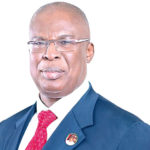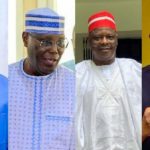Experts in the field of economic research, on Thursday, in Ibadan, Oyo State capital said all hope of the nation in tackling the corruption and battling its vicious effects is not lost, saying that a larger percentage of Nigerians are not corrupt in nature.
They held the view that the country’s system of governance actually enabled corrupt practices, thus creating the leeway for corruption and illicit acts to thrive.
Speaking on the sideline of a training workshop titled “Actualising Behaviour Change (ABC) Series”, organised by MacArthur Foundation in conjunction with the Nigerian Institute of Social and Economic Research (NISER), Dr Temitayo Adeyemo, who is one of the presenters emphasised that “all hope is not lost in the nation’s war against corruption.”
Adeyemo, who is a research fellow with NISER and team member of the MacArthur Project on Research Support for Corruption Control in Nigeria, stated: “Not all the stories are bad and all hope is not lost on the battle against corruption in the country. One of our stories shows that only two per cent of our people are corrupt, meaning that 98 per cent are not corrupt.”
According to her, “we have seen that the system is actually what enables corruption. Many individuals have made up their minds not to be corrupt. But, the system inherently may have been rigged or corrupted, then this corruption cycle would continue.
“But then, many of our respondents have shown that they are not inherently corrupt. You saw the story of a Vehicle Inspection Officer (VIO), who refused to do what was wrong despite inducement.
“Similarly, you also saw many other stories like the Federal Roads Safety Corps (FRSC) officers, who stood for what is right and ideal. So, corruption is not what everybody does, but the few people that does it have spoilt the name of the country.
“Literature review and greater evidence have shown us that corruption is a complex phenomenon. It is something that occurs with feedback and that is why we say that it is complex. It is caused by a lot of things and there are reinforcing and balancing loops to corruption.
“That is why we used system dynamic model to look at the complexity of corruption. You can see from the analysis that corruption can be caused, following the circumvention of law and order by some groups of people. And another group of people can come up again with another form of corrupt practice.
“This will allow the feedback loops to keep going around and it leads to different things in form of negative effects on society. Invariably, the effects of corruption lead to more corruption, thereby making us get into a vicious cycle of corruption and varied vices that come up around it.
Earlier in his remark, the deputy director of Nigeria Office of MacArthur Foundation, Mr Dayo Olaide, who participated in the workshop via virtual platform hinted that the ” 2016 report indicated that 20 per cent of the nation’s Gross Domestic Product (GDP) will be lost to corruption.”
He added: “a 2019 UNODC report on Nigeria showed that a huge sum of N675 billion was paid as cash bribe to officials of government, ” stressing that the cost of corruption is clear in terms of its devastating effects on women and children.”
ALSO READ FROM NIGERIAN TRIBUNE
WATCH TOP VIDEOS FROM NIGERIAN TRIBUNE TV
- Let’s Talk About SELF-AWARENESS
- Is Your Confidence Mistaken for Pride? Let’s talk about it
- Is Etiquette About Perfection…Or Just Not Being Rude?
- Top Psychologist Reveal 3 Signs You’re Struggling With Imposter Syndrome
- Do You Pick Up Work-Related Calls at Midnight or Never? Let’s Talk About Boundaries







